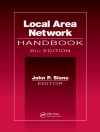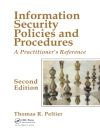Wireless edge networks aim to provide last-mile wireless connections between access points and diversified wireless end devices. Recent years witness the rapid development of wireless communication ecosystems including fundamental theory breakthroughs, manufacture capability improvements, as well as the explosively increasing wireless end devices and service demands.
It is known that spectrum is the irreplaceable resource for wireless transmissions in edge networks. Nevertheless, it is quite challenging and inefficient to allocate dedicated spectrum for each single transmission link due to the severe shortage of spectrum resource. Alternatively, by enabling different links to use the same spectrum, spectrum sharing is envisioned to be a promising paradigm to properly accommodate the conflict between the scarce spectrum resource and substantial spectrum demands. Conventionally, model-driven optimization methods are widely adopted to optimize the spectrum sharing policy in the edge network and achieve friendly coexistence among different transmission links. However, future wireless edge network is predicted to be large-scale and heterogeneous, model-driven optimization methods will be problematic such as imperfect modelling and unacceptable overheads.
Different from the existing related books on spectrum sharing or spectrum management for wireless edge networks, our book leverages the artificial intelligence (AI) to achieve smart spectrum sharing for wireless edge networks and elaborates AI-enabled spectrum sharing technique in typical scenarios, which can guide the development of next-generation spectrum sharing standards, as well as provide innovative spectrum sharing methods for related practitioners, including research fellow, lecturers, and students.
قائمة المحتويات
Chapter 1 Introductions and Preliminaries.- Chapter 2 AI-Enabled opportunistic Spectrum Sharing.- Chapter 3 AI-Enabled Centralized Spectrum Sharing.- Chapter 4 AI-Enabled Distributed Spectrum Sharing.- Chapter 5: Conclusions.
عن المؤلف
Lin Zhang received the bachelor’s degree in communication engineering from Sichuan University, Chengdu, China, in 2011, and the Ph.D. degree from the National Key Laboratory of Science and Technology on Communications, University of Electronic Science and Technology of China (UESTC), Chengdu, in 2017. From October 2014 to April 2016, he worked as a visiting student with the School of Electrical Engineering, Royal Institute of Technology (KTH), Sweden. He is currently an associate professor with UESTC. His research interests include cognitive radio, non-orthogonal multiple access, and intelligent wireless communications. He was a recipient of IEEE GLOBECOM 2012 Best Paper Award and the Student Travel Grant Award, IEEE ICC 2019 Best Paper Award, IEEE Region 10 Distinguished Student Paper Award in 2016, First Prize of Excellent Paper in the First Sichuan-Chongqing Science and Technology Academic Conference in 2020, and First Prize of Natural Science of Chinese Society of Electronics in 2023.
Ming Xiao received Bachelor and Master degrees in Engineering from the University of Electronic Science and Technology of China, Cheng Du in 1997 and 2002, respectively. He received Ph.D. degree from Chalmers University of technology, Sweden, in November 2007. From November 2007 to now, he has been in the department of information science and engineering, school of electrical engineering and computer science, Royal Institute of Technology, Sweden, where he is currently a Professor. He was an editor for IEEE Transactions on Communications (2012–2017), IEEE Communications Letters (Senior Editor Since January 2015), and IEEE Wireless Communications Letters (2012–2016), and has been an editor for IEEE Transactions on Wireless Communications since 2018. He has been an area editor for IEEE Open Journal of the Communication Society since 2019. He received IEEE Vehicular Technology Society Best Magazine Paper Award 2023.
Zicun Wang received the B.E. degree in telecommunication engineering from Zhengzhou University, in 2021. He is currently working toward the Ph.D. degree with National Key Laboratory of Wireless Communications, in the University of Electronic Science and Technology of China (UESTC), Chengdu, China. His research interests include space-air-ground integrated networks, beam training, and intelligent wireless communications.
Wanbin Tang received the B.E., M.E., and Ph.D. degrees in electrical engineering from the University of Electronic Science and Technology of China (UESTC), in 1993, 1998, and 2013, respectively. From 2006 to 2007, he was a visiting scholar with the University of California at Berkeley, Berkeley, CA, USA. He is currently a professor with the National Key Laboratory of Science and Technology on Communications, UESTC. His current research interests include cognitive radio and signal processing in wireless communication.












